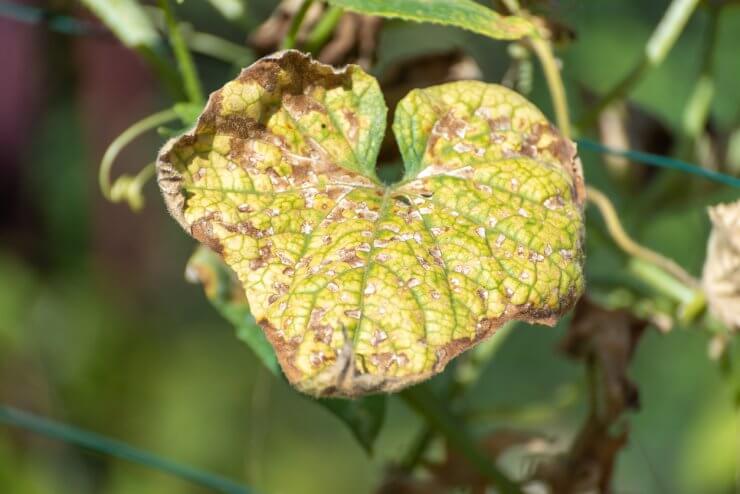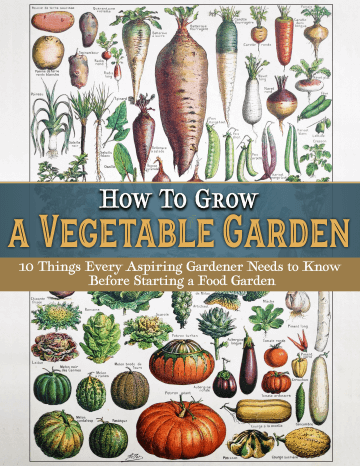
It is a real bummer to walk to your garden on a summer afternoon and find sun-scorched plants wilting away in the heat. You’ve tested your soil, and you even started your own compost to make sure your plants have plenty of nutrition. You started your seeds indoors, and you made sure to harden off the seedlings before they went into the ground. And today, you see several plants with crispy-edged leaves and faded areas.
You grab the hose, turn the water on and give the soil a thorough soak hoping that will stem the tide of damage. Unfortunately, when you come back the next day, things have only gotten worse. What’s going on?
Heat stress can lead to sun-scorched plants even when they have plenty of water. Why? The roots can only take up water at a specific rate. If the plant is losing water through transpiration faster than the roots can supply it, the result can be cellular damage. Water certainly plays a role, but more water doesn’t mean the plant will get hydrated more quickly. If anything, you risk root rot if the soil is waterlogged.
Discover 10 top tips for growing, harvesting, and enjoying fruits, vegetables, herbs and more from your home garden—when you access the FREEBIE How to Grow a Vegetable Garden, right now!
How to save your sun-scorched plants
The best way to save those sun-scorched plants in your garden is to first understand why it occurs. While the obvious answer seems to be hot, sunny days and not enough moisture, there’s a little more to it. In fact, you can end up with sun-scorched plants even if it’s not that hot out.
The University of Nebraska-Lincoln Extension Program points out that an abrupt change in sunlight or temperature can lead to leaf scorch, since the plants don’t have time to adapt. This can be true even if plants aren’t in direct sunlight. So, for example, dramatic changes from a cold, wet spring to high temperatures and lots of sun can cause leaf scorch.
Similarly, the South Dakota State University Extension Program notes that windy conditions can also lead to sun-scorched plants, since water evaporates more quickly from plant leaves and the soil. In other words, it’s vital to consider the overall conditions to diagnose or treat scorched leaves.
That said, heat definitely plays a major role. Obviously, if your vegetables are growing outdoors, you can’t control the weather. You can, however, take a few steps to save those sun-scorched plants from further damage.
So, let’s break out the SPF 30 and get to work.
I’m kidding. You can’t slather your vegetable plants with sunscreen, though you may want some for yourself. Here’s what you can do, though.
1. Don’t stress. A little leaf scorch isn’t going to kill your veggies. Those damaged sections of leaves won’t recover, but leaving them there isn’t going to cause any more damage. In fact, partially damaged leaves can still contribute to the health of the plant through photosynthesis and shading younger leaf growth.
2. Leave the leaves. The conditions that cause leaf scorch can also lead to sunscald on your vegetables. If you remove too many damaged leaves, the fruits lose all that shade and are suddenly exposed to direct sunlight, which could burn them, especially when temperatures are high.
3. Evaluate the situation. Did your garden get over-fertilized? Did you remove a tree branch or a stand of sunflowers that provided filtered sunlight or shade to your garden? Was there a dramatic shift in weather? Did you plant shade-loving veggies in direct sun? Are there other factors leading to less-than-healthy plants, such as powdery mildew or pests? Knowing where the problem comes from can help you determine the best way to correct it.
4. Ensure your plants have adequate water. This shouldn’t be much of a surprise. And again, though water (or lack of water) isn’t the only reason you have sun-scorched plants, it is a factor. Just don’t over-water as a reaction to the problem.
5. Provide shade. You can create temporary shade with anything from a beach or patio umbrella to a sunshade or even a bedsheet. That’s a good option if you only need something for a short period of time. For more permanent shade, you may want to consider a trellis or taller, sun-loving plants.
Have you had issues with sun-scorched plants? How did you resolve the problem?
Discover 10 top tips for growing, harvesting, and enjoying fruits, vegetables, herbs and more from your home garden—when you access the FREEBIE How to Grow a Vegetable Garden, right now!





I live in Phoenix, Arizona and I was surprised at how much damage the suns rays can cause. Watering is not always the answer.
I almost lost two tangerine trees in the last two years, but using mesh to shield them 24/7 they came back to life nicely.
I have tropical as well as semi tropical plants in my living room which I have transported to my patio having lived in Mexico for sometime and always having positive results, I’m not happy with their growth…..I’m thinking maybe changing their soil/ using a different pot. What is your advice?